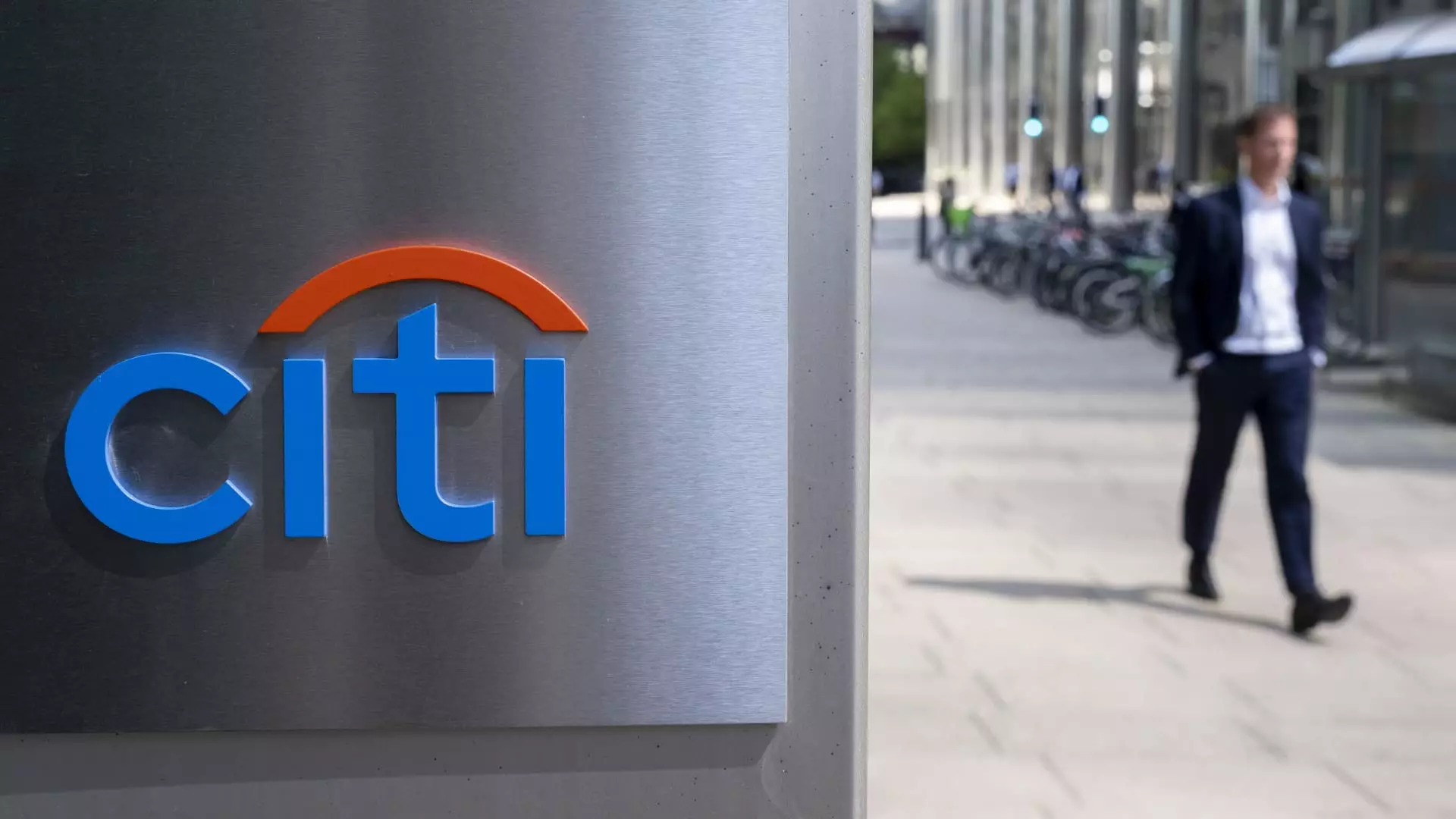Citigroup recently disclosed its third-quarter financial results, showcasing a mixed bag of achievements and challenges that warrant a closer examination. The bank exceeded market forecasts, posting an earnings per share (EPS) of $1.51 compared to the anticipated $1.31. With total revenue reaching $20.32 billion against expectations of $19.84 billion, the figures reflect operational strengths, particularly in investment banking and wealth management. Nonetheless, the overall climate for the financial giant is complicated by increased provisions for potential loan losses, causing shares to decline by approximately 4% post-announcement, despite initial positive trading activity.
A deeper dive into Citigroup’s divisional performance reveals critical insights worth noting. The banking division reported an impressive 18% revenue increase year over year, significantly driven by a 31% surge in investment banking. Wealth management also saw a healthy boost, with revenue rising by 9%. However, these gains were overshadowed by a pronounced decline in net income, which dropped to $3.2 billion or $1.51 per share, down from $3.5 billion, translating to $1.63 per share in the prior year. This decline is primarily attributed to heightened credit costs, with Citigroup building $315 million into their allowance for credit losses.
When reviewing performance in capital markets, equity trading recorded a remarkable 32% revenue bump year over year, indicative of strong market activity and investor engagement. Unfortunately, fixed income trading did not fare as well, with revenues experiencing a 6% decrease. The strategic direction of Citigroup under CEO Jane Fraser, who has been at the helm since March 2021, is focused on streamlining operations, reducing the bank’s global footprint, and executing layoffs to drive efficiency. Investors are keen to hear about progress on Fraser’s revitalization strategy, particularly during the upcoming analyst call.
Despite the mixed results, Citigroup managed to decrease its expenses by 2% compared to the previous year, aligning with their projected guidance of full-year expenses between $53.5 billion and $53.8 billion, excluding certain regulatory costs. Additionally, the bank’s net interest income, which declined by 3% year over year to $13.4 billion, highlights the ongoing challenges they face in sustaining profitability in a tightening interest rate environment. The outlook for this metric remains neutral, indicating potential stasis in the coming quarters.
In a broader context, Citigroup’s performance somewhat mirrors trends seen across the banking sector, with other major institutions such as Goldman Sachs and JPMorgan Chase also surpassing earnings expectations. Year-to-date, Citigroup has experienced over a 28% rise in share price, outpacing both the S&P 500 and its financial sector peers. This sharp increase underscores a degree of investor confidence, yet the company’s ability to maintain upward momentum will hinge on navigating the challenges ahead, particularly concerning credit quality and operational efficiencies.
While Citigroup’s third-quarter earnings reflect certain strengths, ongoing concerns about loan loss reserves and the overall credit landscape suggest that the path forward may be fraught with complexities. Investors will be watching closely to see how the bank adapts its strategies moving into the next quarter.

